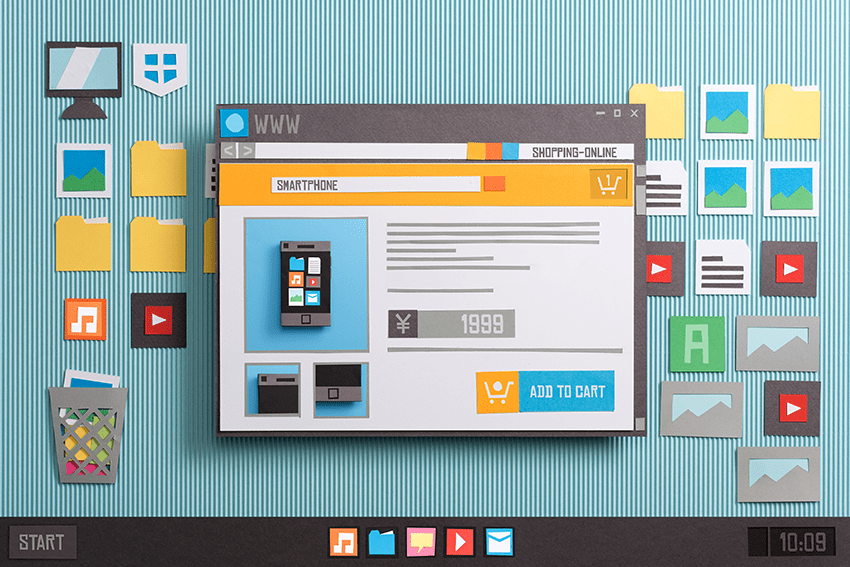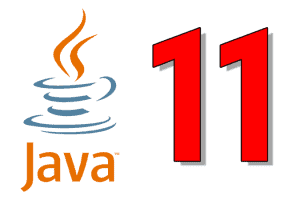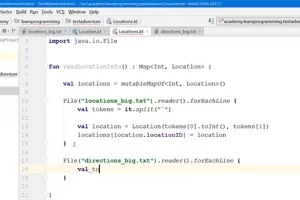How Can You Create a Website?

Have you ever wondered how to create or program a website? Perhaps you’re a student looking to build a portfolio site. Or, maybe you’re a salesperson and want to create an e-commerce website. Or, maybe you are just really curious how a website is built.
Every website on the internet relies on two key languages: HTML and CSS. HTML is used to create webpage content. CSS is used to stylise that content to make it more aesthetically appealing. There are a lot of frameworks and technologies that assume that developers have a solid knowledge of HTML and CSS.
I first started programming in college, and one of my first assignments was to build a simple webpage. At first, HTML and CSS seemed challenging and I didn’t fully understand their capabilities. After some practice, I got the hang of creating websites and began to learn the more advanced features of the languages. I know what it feels like to be a beginner, and as an instructor on Udemy I teach things in a way that will ensure you don’t feel overwhelmed at any point. Each concept lays the foundation for the next concept and so on.
Here are some tips for learning to program websites:
 Start off small
Start off small
Don’t aim to create a fully functional website right off the bat. Start by learning how to create a simple webpage that uses some basic HTML elements.
Learn all of your options
Many beginners only write code using the few concepts they know, and are cautious to learn all of the options that programming languages make available to them. If a chef only used 50% of the ingredients needed to cook a meal, there would be some key flavours and textures missing from the meal. As a programmer, if you limit your knowledge to the attributes and properties you have access to, you are preventing your code from being the best it can be.
Don’t be afraid to make changes
One of the most important concepts in computer programming is refactoring, changing code to be cleaner and more functional. Even once you have code that does what you want it to, ask yourself if there is a way that you can make it better or save yourself work in the future by making your solution generic and reusable.
Your code doesn’t have to be perfect
All too often, beginner programmers get caught up worrying that there code has to be perfect. Making changes to the code to ensure that it is robust and optimised is one thing, but don’t drive yourself crazy. Even code used in the industry is not always 100% perfect.
Keep your goal in mind
Whatever your reason for learning to create websites, keep in mind how your goal relates to what you are doing. Each small milestone will get you that much closer to your final objective. Keep track of your weekly progress and make sure that you don’t get bogged down by any one error you may come across. If you get stuck, don’t be afraid to ask for help from a more experienced developer.
Don’t just learn HTML and CSS, Learn a Framework like Bootstrap
These days, websites are being viewed more on user’s mobile devices like phones and tablets. It is important for developers to ensure that their websites scale across devices of all sizes. Bootstrap is a very popular web development frameworks that provides added controls for laying out and controlling the scaling of elements on a webpage.
Find the code editor that works best for you
There are tons of code editors out there that you can use to write HTML and CSS code. Some of the most popular options are Visual Studio Code, Sublime Text, and Notepad++. Personally, my favourite out of these options is Visual Studio Code, as it is cross-platform and has several intuitive built-in features. Using the right code editor and customising it to your liking can speed up your programming workflow.
There are several benefits to learning web development using HTML and CSS
Learning these skills will make you more valuable to employers and empower you to create websites for whatever you choose. You will also have a foundation of skills that you can build on by learning other languages and technologies, many of which assume that the developer already is proficient in HTML and CSS. These are real-world languages that you can use to land a web developer job and make a great salary. The average pay for a web developer is around $65,000. Keep in mind that as you learn more skills and work your way up to managerial positions your salary may approach 6 figures.
Web development is also largely a freelance skill. You can obtain a job as a freelance web developer working on your own time from the comfort of your own home. Web development skills can empower you to control your future and how you spend your time.
Start learning web development today
Are you interested in learning web development? My HTML and CSS Masterclass will teach you everything you need to know about HTML and CSS. You will also learn how to use the popular Bootstrap framework to layout webpage elements. As an added bonus, there is a section on XHTML development, which is a spin-off of the HTML language. The course will also teach you debugging techniques you can use to solve common errors in your code. This course is hands-on and is the only course you need to get up to speed with HTML and CSS. Before purchasing the course you can check out the syllabus and free preview lectures to make sure that it is a right fit for you.
Best of luck in your studies, and feel free to reach out to me with any questions you may have.




3 Comments
Great post. I was checking continuously this blog and I am impressed!
Extremely helpful information particularly the last part
🙂 I care for such information much. I was looking for this certain information for a long
time. Thank you and good luck.
Hi Dagny,
Why would I build my own website? 🙂 Just because I could do it, does not mean I should.
I assume you are looking at https://timbuchalka.com, right? That’s my personal blog.
I have another website here, that is not Wix-based.
https://learnprogramming.academy
Regards,
Tim
What is object-oriented programming, and how does it differ from procedural programming? Provide examples of object-oriented languages.